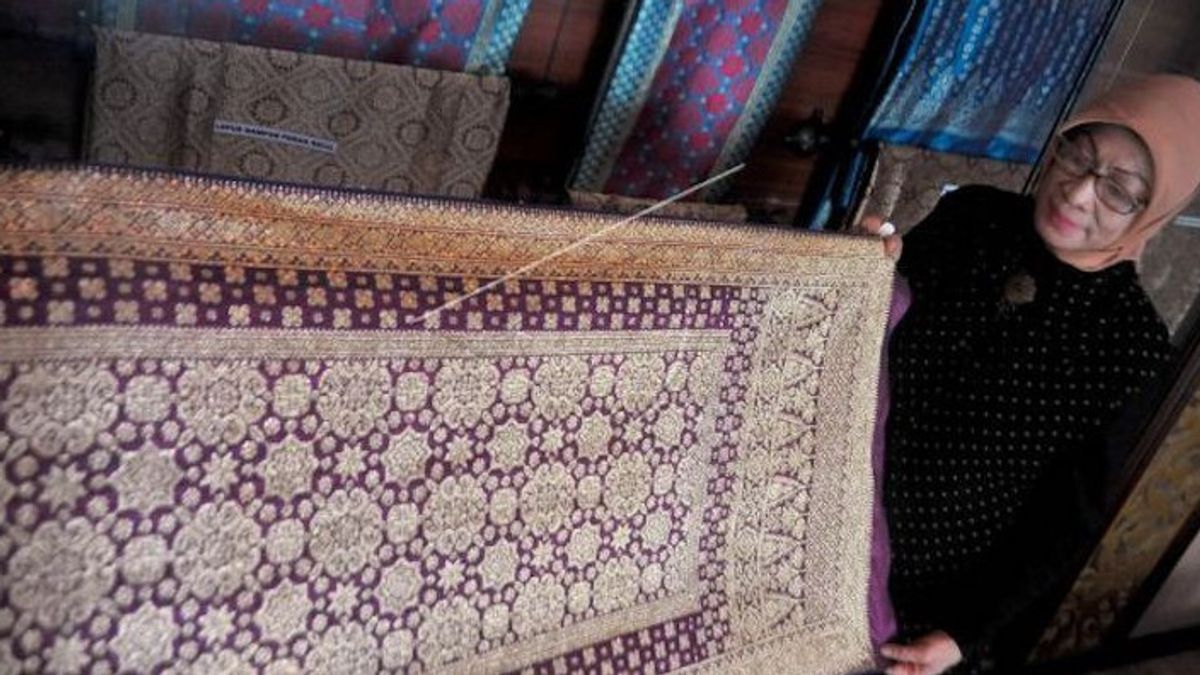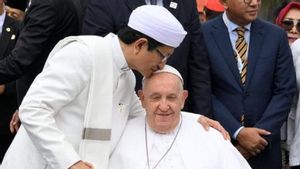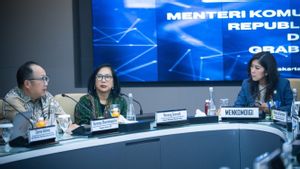JAKARTA - The South Sumatra Provincial Government does not question the Malaysian Songket cloth, which has now received recognition from UNESCO, in the list of Intangible Cultural Heritage.
Head of the South Sumatra (Sumsel) Industry Service, Ernila Rizar, admitted that he did not have a problem because Palembang's Songket cloth was included in the national intangible heritage.
"According to the directions from the governor, we don't have to make a fuss about it, the important thing is how to continue to develop craftsmen and increase their income," Ernila said as quoted by Antara, Tuesday, March 1.
The traditional songket cloth was officially designated as a UNESCO Intangible Cultural Heritage from Malaysia at the 16th session of the Intergovernmental Committee for the Protection of Intangible Cultural Heritage, in a series of events from 13 to 18 December 2021.
For South Sumatra, said Ernila Rizar, this recognition will not reduce the prestige of songket from Palembang, which is made from gold thread.
According to him, the fabrics made by Palembang artisans are still believed to have the highest grade compared to songket fabrics from other regions.
In fact, Ernila claims that this Palembang Songket cloth has the highest demand. "From Malaysia, many people come to Palembang to buy songket," he said.
Although not yet in a large party, he continued, this Palembang Songket fabric has also penetrated the export market in the retail business.
Currently, South Sumatra has a number of songket manufacturing centers spread across Palembang, Ogan Ilir and Ogan Komering Ulu Timur. In addition, there are also new centers in Lahat, Ogan Komering Ilir and Musi Rawas which have found their own fabric motifs.
In addition to continuing to foster craftsmen to maintain quality, he said, South Sumatra is also aggressively promoting the use of these local products in the activities of the Proudly Made in Indonesia National Movement.
He also revealed that what is no less important is preserving the songket cloth by fostering human resources for craftsmen.
"Indeed, songket makers are currently dominated by the older generation, but there are also young people who want it, such as in Ogan Komering Ilir, Lahat and Musi Rawas who have their own motives," he said.
The English, Chinese, Japanese, Arabic, and French versions are automatically generated by the AI. So there may still be inaccuracies in translating, please always see Indonesian as our main language. (system supported by DigitalSiber.id)













